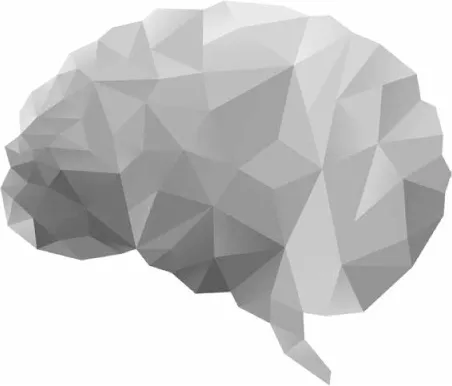Process Chapter 1 Foundations
TO ORIENT YOUR JOURNEY through the Making Shift Happen process, we begin with a chapter designed to lay the foundational groundwork on which we build throughout this book. This chapter will introduce you to some of the basic principles that underlie how people think and operate, as well as to the fundamental concepts that underlie our entire Making Shift Happen process. Understanding these foundational principles will help to enhance your understanding of our Building Blocks, enabling you to use them strategically as you design a strong, cohesive behavior change initiative.
We begin with an overview of some important cognitive processes to understand how they influence our behaviors. Next, we explore the origins of the Making Shift Happen process, which draws from various academic and scientific fields of study as well as problem-solving approaches from a range of professional sectors. Finally, we provide some important ethical guidelines to follow and caveats to keep in mind as you design your behavior change initiative so as to avoid unintended consequences, protect and empower your audience, and maximize your positive impact on the environment.
A Look Ahead: FOUNDATIONS
Foundations of Behavior
Two cognitive systems
Cognitive biases
Emotions
We think and live our lives in narratives
The Making Shift Happen Process
Psychological and behavioral sciences
Behavioral economics and choice architecture Social marketing
Systems thinking
Design thinking
Guiding Principles of the Making Shift Happen Process
Take an intersectional approach to environmentalism
Consider culture and context
Follow ethical guidelines
Think carefully about when and whom you ask: navigating scarcity and worry
Think carefully about what you ask: the implications of spillover
Think carefully about how you ask: evoking emotions with care
Test, test, test
Foundations of Behavior
There are many factors that shape human behavior, including beliefs, values, social norms, our perception of ourselves, as well as our built and natural environments. Some of the most significant behavioral influences are the hardest to see, such as cognitive biases. So before we go any further, let’s begin with an exploration of why people do the things they do.
Two cognitive systems13
Psychologists often describe two different cognitive systems that underlie the way we think and how we navigate the world: automatic and reflective.
The automatic system is fast, effortless, associative, involuntary, and subconscious. It is often called “fast thinking” or “System 1 thinking” to reflect its earlier evolutionary origin and instinctual nature.
Our automatic system allows us to evaluate situations instantly and without conscious thought, like when we need to swerve to avoid something in the road, when we get a gut feeling about someone’s mood during a conversation, or when we’re scanning a page and certain things jump out at us as “important.” The automatic system evolved for survival so that we could respond instantly to potential threats: when we hear a rustle in the grass, it’s better to assume there is a lion than to deliberate and find out the hard way. Automatic thinking also comes into play when we are overwhelmed with information, afraid, overstimulated, or are having a hard time paying attention—which for most of us is pretty often.
The reflective system is slow, self-aware, voluntary, and conscious. It is often called “slow thinking” or “System 2 thinking.” The reflective system is critical for complex problem-solving as well as the continuous self-assessment and monitoring of our own behavior. It’s the discipline that keeps us focused on our work when we’re tempted to procrastinate and the self-restraint that maintains our composure when we’re upset. Reflective thinking is important for tasks that require more concentration such as researching which retirement plan to choose or reading the news, and it’s impeded when attention is disrupted or depleted.
Automatic and reflective thinking are not mutually exclusive; they interact with each other to guide our behaviors. Automatic thinking runs, well, automatically, and it continuously feeds reflective thinking its impressions and feelings. Reflective thinking generally accepts those suggestions from automatic thinking, but kicks into gear when it detects we are about to make an error or to solve problems that cannot be processed by automatic thinking. This dynamic is quite efficient, but the general reliance on automatic thinking can also lead to systematic errors in judgment and decision-making, such as cognitive biases.
Cognitive biases
We often use heuristics (e.g., mental shortcuts) to facilitate rapid judgment and decision-making, especially when we’re navigating with our automatic system.13 These shortcuts usually save us time and energy, but they can also cause a host of systematic errors in our decision-making, known as cognitive biases. As we process information and interpret our surroundings, many different cognitive biases can emerge, each with varying effects on our behavior.
We may not take action to address societal challenges because we believe desirable outcomes are more likely than undesirable outcomes (optimism bias). We interpret information differently depending on how emotionally motivated we are to reach a certain conclusion (motivated reasoning), and we have the tendency to defend our choices even if the option we’ve chosen has changed profoundly (choice blindness). We make different decisions depending on our current positive or negative emotional state (affect heuristic). The more often we hear about something, the more likely we are to believe it, and the stronger our preference for it will be (mere exposure effect). We specifically seek ...



